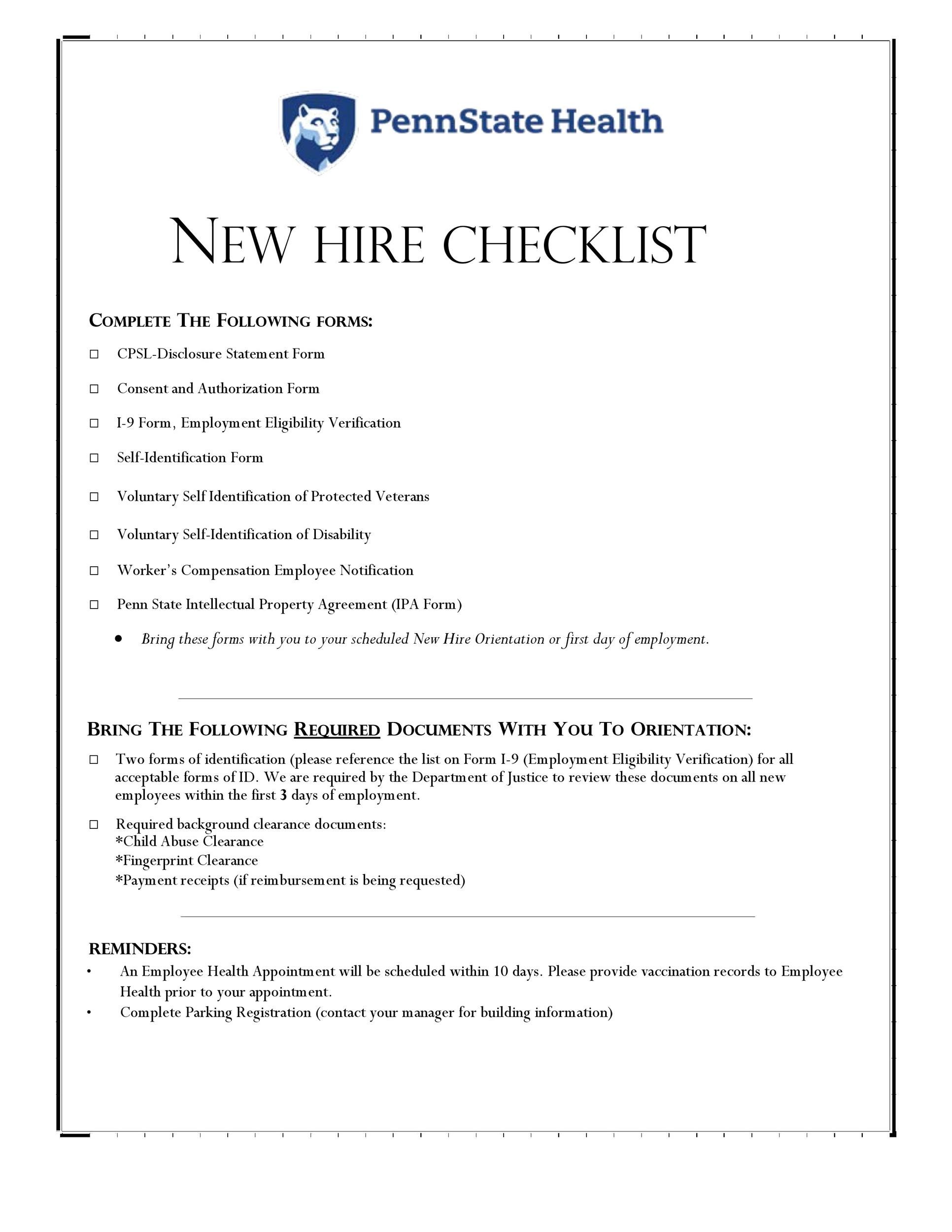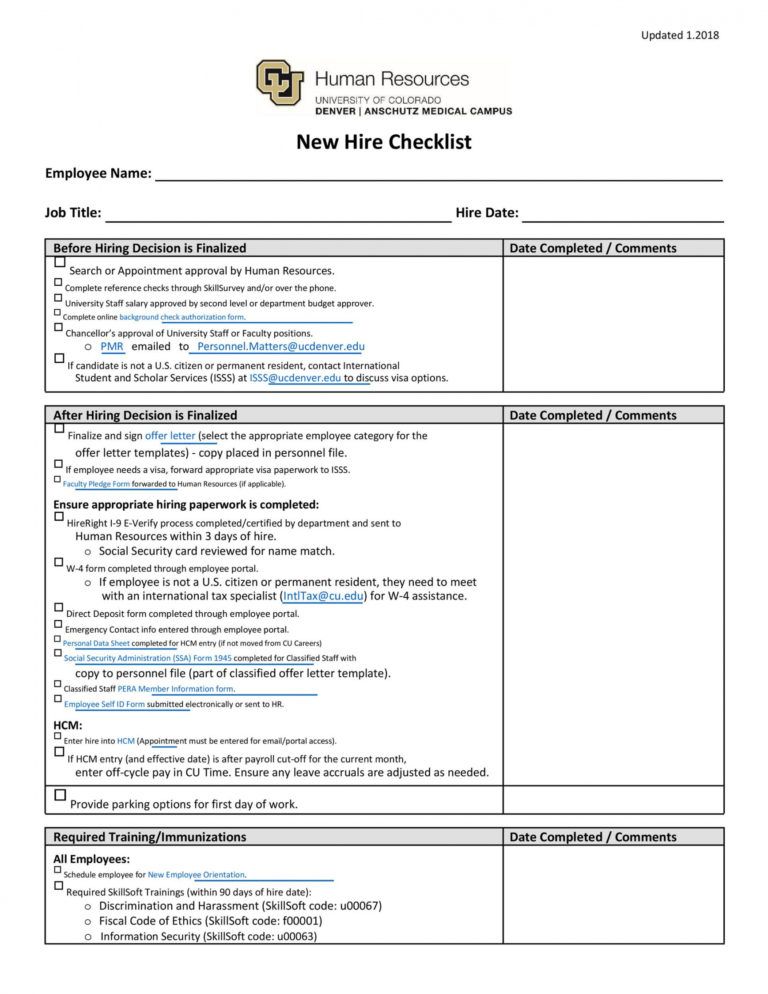Hire Date: When You Sign HR Paperwork?

When embarking on a new career journey, one of the key questions that often arises is, "When exactly does my employment start?" This is not merely a matter of curiosity; it has significant implications for your onboarding process, salary calculation, benefits eligibility, and even probation periods. Understanding the nuances between the hire date and when you officially sign HR paperwork can be crucial for any new employee.
What Is a Hire Date?

Your hire date, in its simplest definition, is the date when your employment with a company officially begins. This date is typically indicated on your employment contract or job offer letter. Here’s why the hire date matters:
- Payroll and Salary Calculation: Your hire date is used to determine the beginning of your pay cycle. It sets the foundation for when your first paycheck will be issued and how your annual salary or hourly wage will be prorated.
- Benefits Eligibility: Many companies have waiting periods before employees become eligible for various benefits like health insurance, retirement plans, or paid time off. Your hire date sets the clock ticking for these eligibility windows.
- Probation Periods: Some companies use the hire date to establish the start of a probationary or introductory period, during which your performance is assessed before confirming your position permanently.
- Seniority: In workplaces where seniority plays a role in perks like vacation time accrual or promotion opportunities, your hire date can be pivotal.
✅ Note: While the hire date is important, it might not always correspond directly with when you begin actively contributing to the company.
The HR Paperwork

Signing HR paperwork is a formal step that solidifies your employment agreement. Here’s what typically happens during this phase:
- Employment Contract: You’ll review and sign your contract, which includes details like your position, salary, work hours, confidentiality agreements, and other terms of employment.
- Onboarding Documents: This includes forms for direct deposit, tax withholding, emergency contacts, and perhaps agreements related to company policies or codes of conduct.
- Benefit Enrollment: You might receive materials or guidance for enrolling in company-offered benefits.
- Policy Acknowledgments: You’ll likely acknowledge that you’ve read and understood company policies, which could cover areas like data protection, anti-harassment policies, or workplace safety.
The process of signing HR paperwork can occur:
- Before your start date: If you’re asked to sign documents prior to your first day of work, this might be for logistical reasons, allowing for a smoother onboarding process. Here, the hire date would still be your official start date.
- On your start date: Some companies prefer you sign all necessary paperwork on your first day to ensure everything is in order before you start working.
- After you’ve started: In some cases, paperwork might be provided after you’ve begun working due to administrative delays or other scheduling issues.
The Hire Date and HR Paperwork: When Do They Coincide?

The relationship between your hire date and when you sign HR paperwork can differ from one organization to another:
- Hire Date Precedes HR Paperwork: In some scenarios, your hire date might be set before the paperwork is signed. This could happen if there’s an employment contract negotiation period or pre-employment paperwork that gets sent out early. The company might still be finalizing HR documentation for completion on your first day.
- HR Paperwork Precedes Hire Date: Signing HR documents before starting can be logistical or a result of legal requirements to have certain paperwork completed before an employee begins work.
- Simultaneous: In a straightforward scenario, your first day might be both the hire date and when you sign HR paperwork, making everything occur concurrently.
Implications of When You Sign HR Paperwork

Here’s what you should know about the implications:
- Pay: If there’s a gap between when paperwork is signed and your actual hire date, ensure clarity on when your first pay cycle will begin.
- Benefits Enrollment: You might want to understand if signing paperwork earlier or later affects your access to benefits.
- Employment Status: A delay in paperwork might mean your employment status could be ambiguous, potentially affecting probation periods or your legal standing as an employee.
- Eligibility for New Employee Programs: Programs like mentorships or onboarding sessions often have specific start dates. If your paperwork is signed after these dates, you might miss out on certain programs or have to wait for the next cycle.
🌟 Note: Be aware of when HR paperwork is completed as it could have subtle but significant effects on your employment experience.
In summary, while the hire date and HR paperwork signing are pivotal moments in your employment journey, they don’t always align perfectly. It's beneficial to be aware of when you can expect to sign paperwork, as this information can guide your expectations around pay, benefits, and your overall onboarding experience. Keep in mind, too, that understanding your company's specific HR processes and policies can alleviate confusion and ensure a smoother transition into your new role. Engaging with HR or your direct manager can clarify any discrepancies or uncertainties, setting a positive foundation for your tenure with the company.
What happens if there’s a delay in signing HR paperwork?

+
A delay might postpone your first paycheck or access to benefits, but it won’t negate your employment as long as you have a valid offer or contract.
Can I negotiate my hire date?

+
Yes, within reason. If you have a prior commitment or need additional time before starting, you can discuss it with HR or your hiring manager.
What should I do if I have questions about HR paperwork?

+
Contact your HR representative or hiring manager directly. They’re there to help guide you through the process.
How does signing HR paperwork affect my employment status?

+
Signing HR paperwork formalizes your employment, ensuring you’re officially recognized as an employee by the company, affecting your legal and benefit rights.